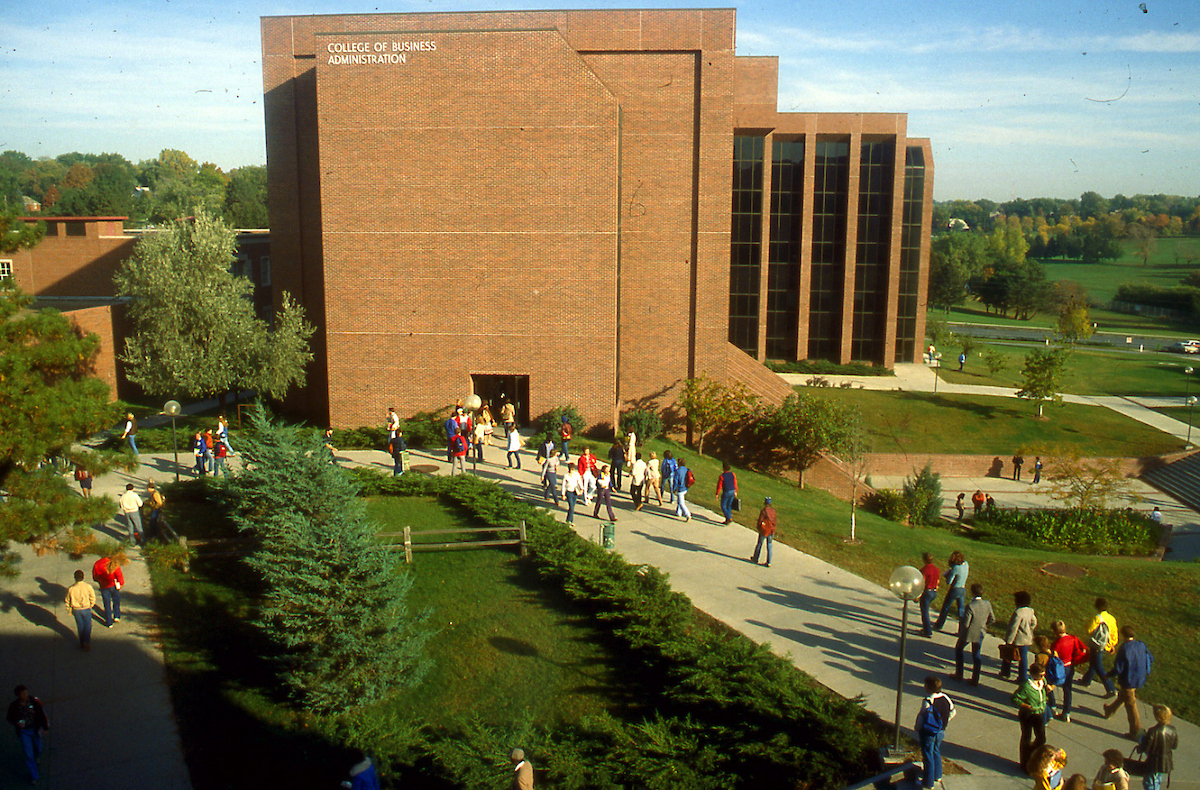Executive MBA Program Celebrates 50 Years
1908 |
|
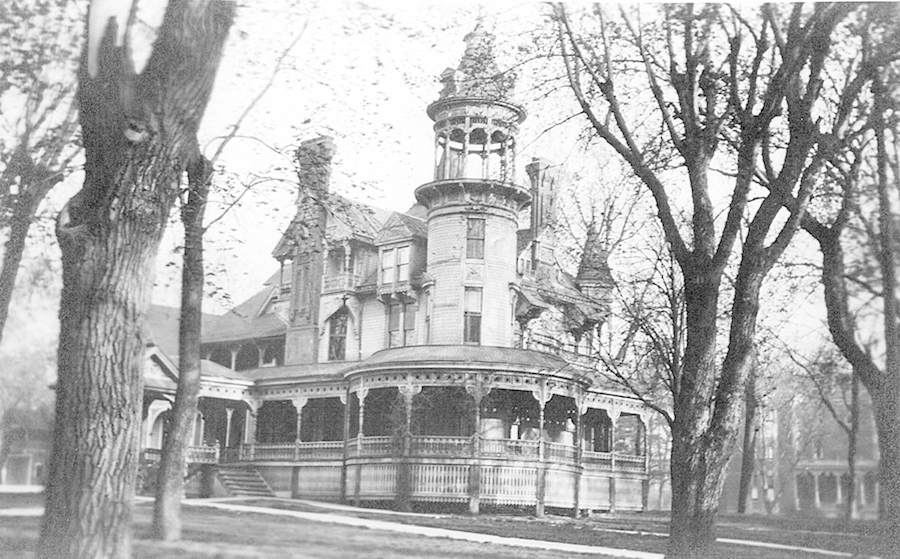 |
Founded as a private non-sectarian college in 1908, the University of Omaha became the Municipal University of Omaha in 1931. Courses were offered as part of the business degree program under the Division of Business within the College of Commerce. However, it was not until 1952 that the College of Business was voted into college status by the Board of Regents. |
1968 |
|
|
The name and structure of the Municipal University of Omaha was changed to its current title in 1968 to the University of Nebraska at Omaha when it became part of the University of Nebraska system. |
 |
1975 |
|
 |
The Executive MBA was established in 1975 as “The Executive Program.” The 13th oldest program in the United States was founded at the University of Nebraska-Lincoln with Dr. Ronald L. Smith serving as the inaugural dean and Jack Goebel as program director. At that time, the two-year, 36-hour graduate degree program cost $1,900 per year, and admission requirements included a minimum of 10 years of business experience and an undergraduate degree. Goebel served as director through 1979, calling his time with the program a “marvelous experience” and a way for the college to forge stronger connections with the community.
|
1976 |
|
| The program was offered jointly at the Lincoln and Omaha campuses the year following its inauguration. In Omaha, Dr. William V. Muse, dean of CBA from 1973-1979, championed the program. Muse developed strong relationships with many Omaha companies and said the classes filled up quickly - evidence that the program was satisfying a need that existed in the local business community. In 1987, the program was offered solely at UNO under the leadership of Dr. David Ambrose. |  |
1989 |
|
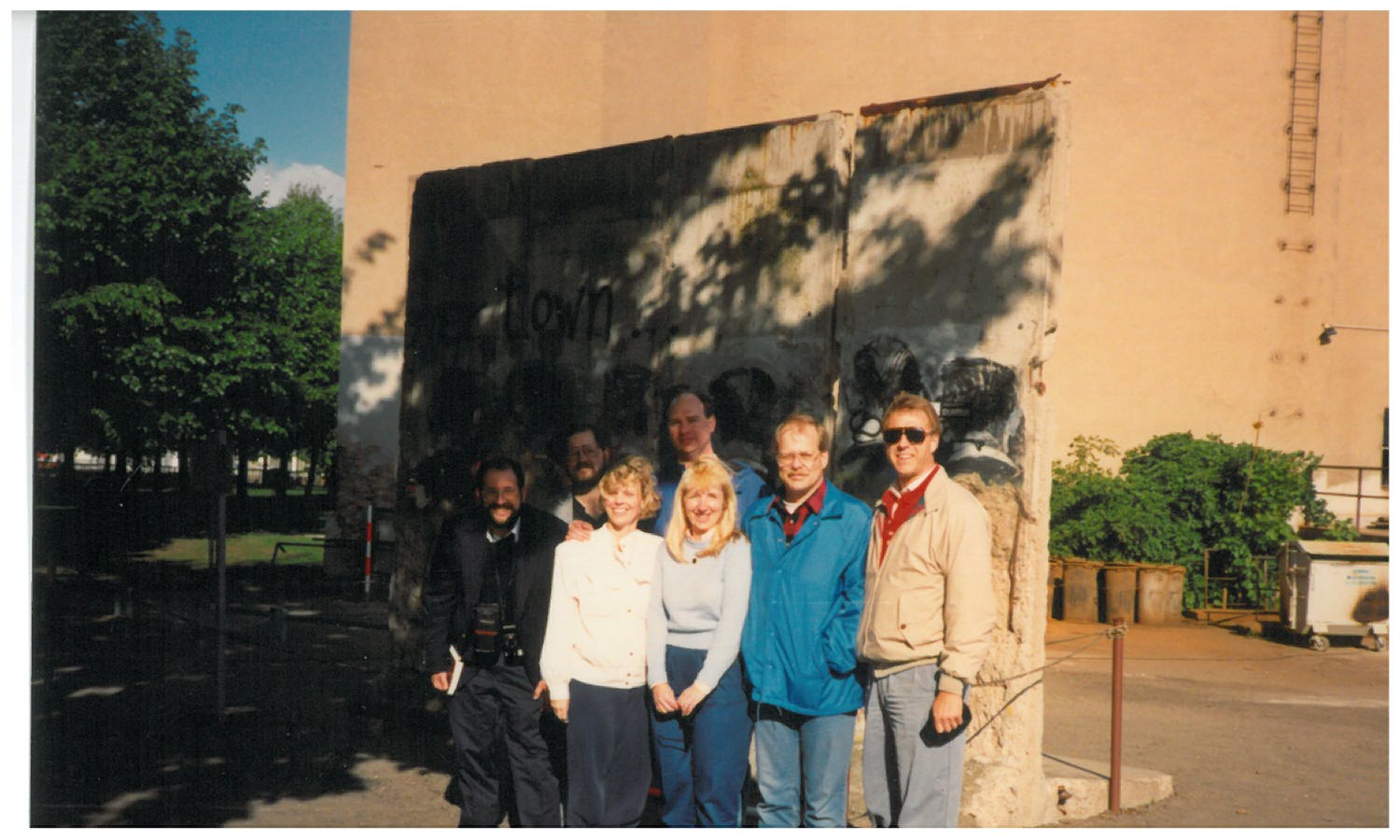 |
The international perspective of the program was adopted in 1989. Student groups of 3 to 6 students, supervised by a faculty member, researched and conducted international business projects as part of a capstone project generally focused on market-entry studies. This real-world experience integrated knowledge gained in the classroom with current business issues, and the projects included site visits to foreign countries. |
1997 |
|
|
Beginning in 1997, hardwired Internet access was added to the EMBA classroom in Roskins Hall and was incorporated into the curricula of most classes. That same year, laptop computers were added as part of the entry requirements. Other developments in the following years included the addition of distance learning; the Executive MBA Boot Camp (noncredit seminars to enhance computer, research, and study skills); and a Strategic Leadership course. |
|
2008 |
|
 |
In August 2008, the program revised the format from a 24-month program to an 18-month program in order to remain a competitive force in higher education. By this time, students in the 42-credit-hour program were only required a minimum of six years of professional experience, and the total cost of the program grew to $41,650. Classes were developed and revised significantly to provide the latest technological tools and to accommodate advancements in business, management, and leadership. |
2010 |
|
|
One of the most significant transformations in the life of the Executive MBA program occurred in August 2010 when the College of Business Administration moved from Roskins Hall on Dodge campus to Mammel Hall on Pacific campus. Thanks to the generosity of Carl and Joyce Mammel and Bill and Ruth Scott families, Mammel Hall offered facilities for business students including stat-of-the-art digital technology displays, a two-story 190 auditorium, and new offices, study spaces, and classrooms for th EMBA faculty, staff, and students. Contribuors to named areas in the Executive MBA Suite 100 include Lou Jr. and Kathleen Rotella, Dr. Robert and JoAnn Mathis, and Valmont Industries, Inc. |
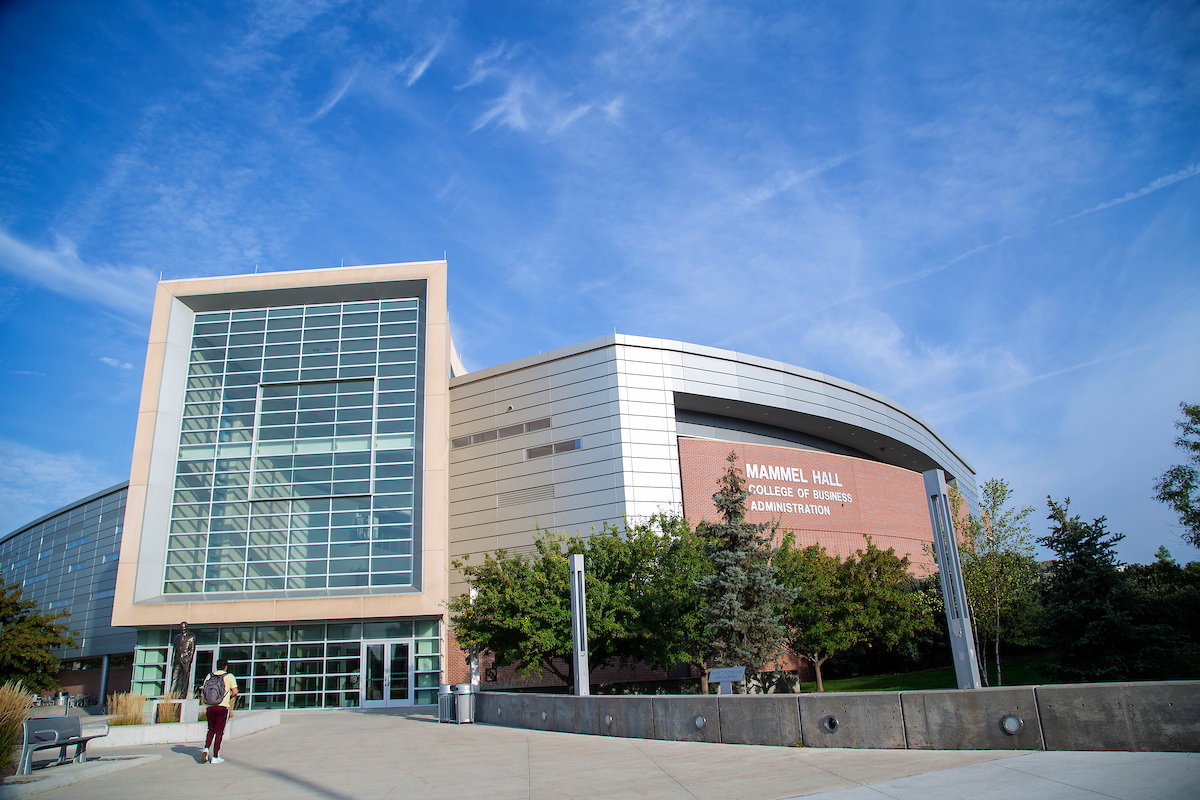 |
2012 |
|
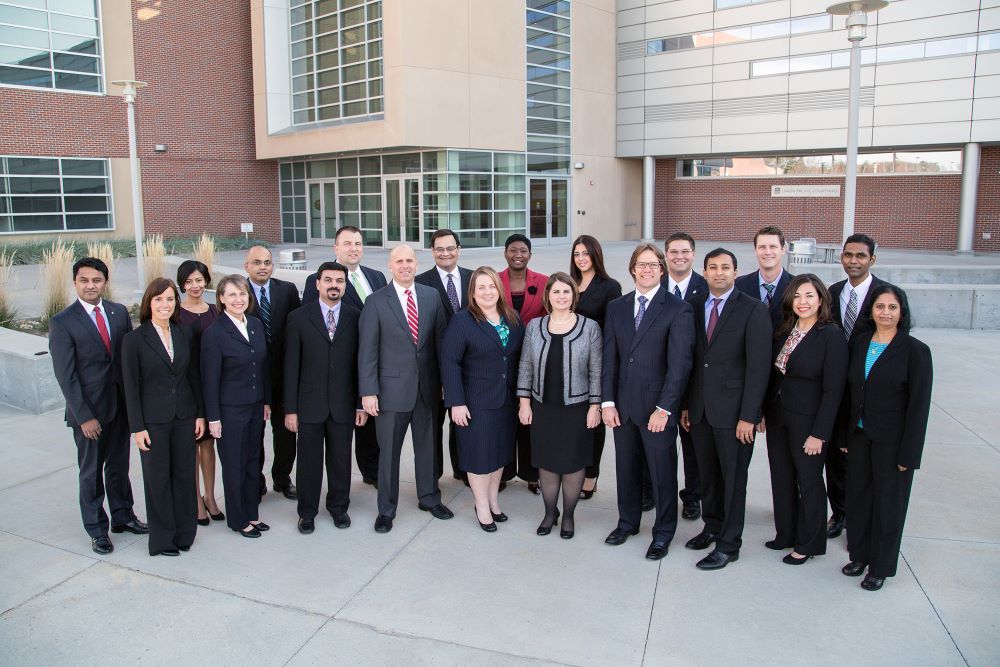 |
Alumni of the program have played a significantly increased role throughout the past 50 years. In 2012, the UNO Executive MBA Alumni Association was officially created, and a board of directors and executive committee were formed. The objectives of the organization are to increase the value of the program beyond graduation. Alumni also play a large role in the recruiting process. |
2021 |
|
| The 44,000 square-foot Rod Rhoden Business Innovation Center addition was completed at Mammel Hall. The new addition serves as a central hub for applied learning, community engagement and cutting-edge research that reimagines business education. | 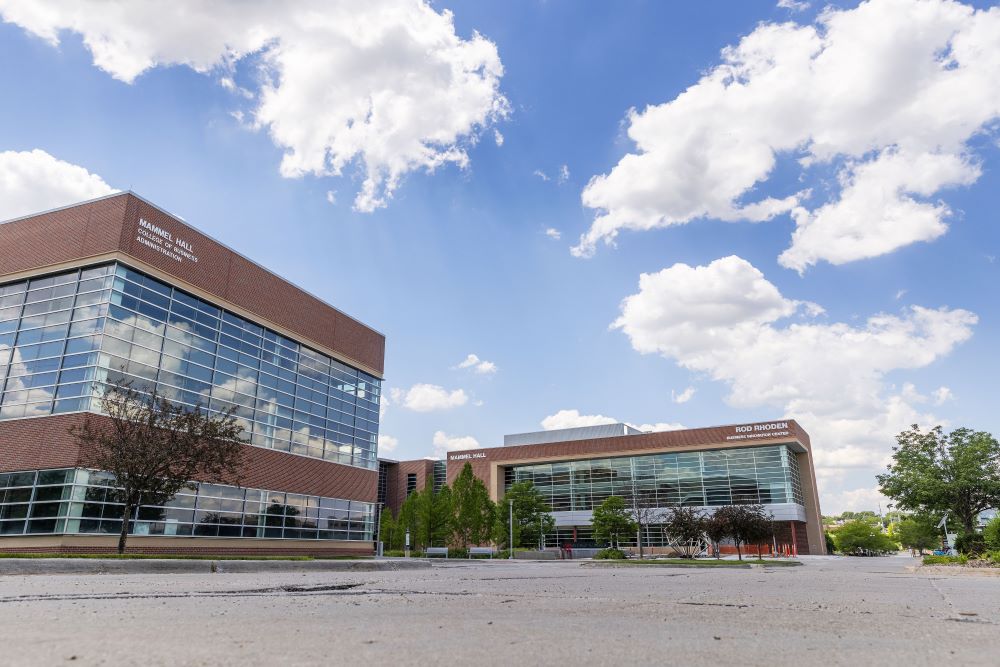 |
2023 |
|
|
|
The EMBA program underwent a redesign changing the structure of the program and moving it to an online format. The program also began to offer all new exectutive graduate certificates as well as new concentration areas. |
2025 |
|
| UNO's EMBA program celebrates 50 years! | 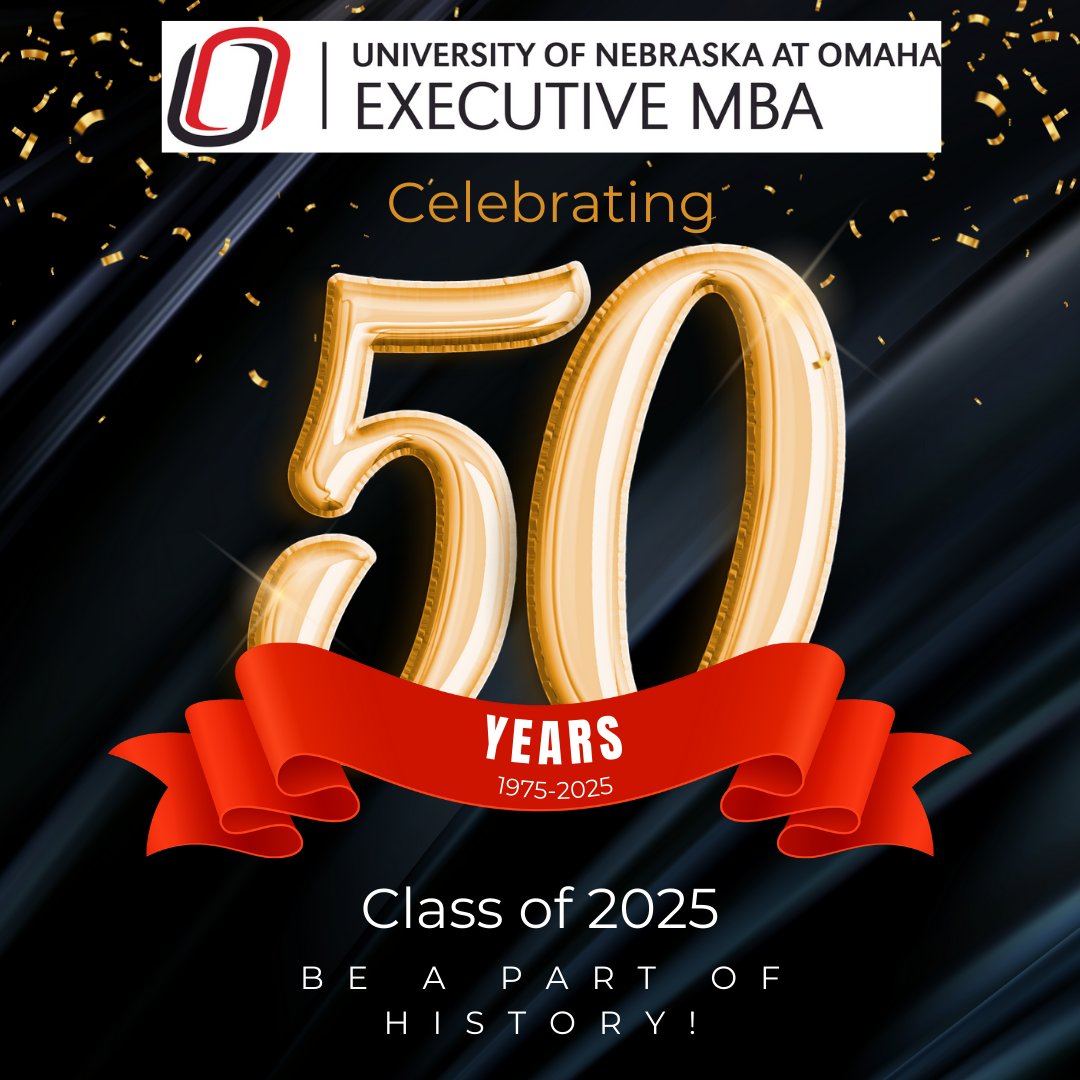 |
